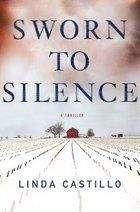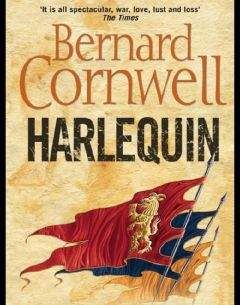Michael Ondaatje - The English Patient

Скачивание начинается... Если скачивание не началось автоматически, пожалуйста нажмите на эту ссылку.
Жалоба
Напишите нам, и мы в срочном порядке примем меры.
Описание книги "The English Patient"
Описание и краткое содержание "The English Patient" читать бесплатно онлайн.
Kip would look up, the arch of the high wounded trees over him, the path in front of him mediaeval, and he a young man of the strangest profession his century had invented, a sapper, a military engineer who detected and disarmed mines. Each morning he emerged from the tent, bathed and dressed in the garden, and stepped away from the villa and its surroundings, not even entering the house—maybe a wave if he saw her—as if language, humanity, would confuse him, get, like blood, into the machine he had to understand. She would see him forty yards from the house, in a clearing of the path.
It was the moment he left them all behind. The moment the drawbridge closed behind the knight and he was alone with just the peacefulness of his own strict talent. In Siena there was that mural she had seen. A fresco of a city. A few yards outside the city walls the artist’s paint had crumbled away, so there was not even the security of art to provide an orchard in the far acres for the traveller leaving the castle. That was where, she felt, Kip went during the day. Each morning he would step from the painted scene towards dark bluffs of chaos. The knight. The warrior saint. She would see the khaki uniform flickering through the cypresses. The Englishman had called him fato profugus—fate’s fugitive. She guessed that these days began for him with the pleasure of lifting his eyes up to the trees.
They had flown the sappers into Naples at the beginning of October 1943, selecting the best from the engineering corps that were already in southern Italy, Kip among the thirty men who were brought into the booby-trapped city.
The Germans in the Italian campaign had choreographed one of the most brilliant and terrible retreats in history. The advance of the Allies, which should have taken a month, took a year. There was fire in their path. Sappers rode the mudguards of trucks as the armies moved forward, their eyes searching for fresh soil disturbances that signalled land mines or glass mines or shoe mines. The advance impossibly slow. Farther north in the mountains, partisan bands of Garibaldi communist groups, who wore identifying red handkerchiefs, were also wiring explosives over the roads which detonated when German trucks passed over them.
The scale of the laying of mines in Italy and in North Africa cannot be imagined. At the Kismaayo-Afmadu road junction, 260 mines were found. There were 300 at the Omo River Bridge area. On June 30, 1941, South African sappers laid 2,700 Mark 11 mines in Mersa Matruh in one day. Four months later the British cleared Mersa Matruh of 7,806 mines and placed them elsewhere.
Mines were made out of everything. Forty-centimetre galvanized pipes were filled with explosives and left along military paths. Mines in wooden boxes were left in homes. Pipe mines were filled with gelignite, metal scraps and nails. South African sappers packed iron and gelignite into four-gallon petrol cans that could then destroy armoured cars.
It was worst in the cities. Bomb disposal units, barely trained, were shipped out from Cairo and Alexandria. The Eighteenth Division became famous. During three weeks in October 1941, they dismantled 1,403 high-explosive bombs.
Italy was worse than Africa, the clockwork fuzes nightmarishly eccentric, the spring-activated mechanisms different from the German ones that units had been trained in. As sappers entered cities they walked along avenues where corpses were strung from trees or the balconies of buildings. The Germans often retaliated by killing ten Italians for every German killed. Some of the hanging corpses were mined and had to be blown up in midair.
The Germans evacuated Naples on October 1, 1943. During an Allied raid the previous September, hundreds of citizens had walked away and begun living in the caves outside the city. The Germans in their retreat bombed the entrance to the caves, forcing the citizens to stay underground. A typhus epidemic broke out. In the harbour scuttled ships were freshly mined underwater.
The thirty sappers walked into a city of booby traps. There were delayed-action bombs sealed into the walls of public buildings. Nearly every vehicle was rigged. The sappers became permanently suspicious of any object placed casually in a room. They distrusted everything they saw on a table unless it was placed facing “four o’clock.” Years after the war a sapper putting a pen on a table would position it with the thicker end facing four o’clock.
Naples continued as a war zone for six weeks and Kip was there with the unit for the whole period. After two weeks they discovered the citizens in the caves. Their skin dark with shit and typhus. The procession of them back into the city hospitals was one of ghosts.
Four days later the central post office blew up, and seventy-two were killed or wounded. The richest collection of mediaeval records in Europe had already burned in the city archives.
On the twentieth of October, three days before electricity was to be restored, a German turned himself in. He told authorities that there were thousands of bombs hidden in the harbour section of the city that were wired to the dormant electrical system. When power was turned on, the city would dissolve in flames. He was interrogated more than seven times, in differing stages of tact and violence—at the end of which the authorities were still uncertain about his confession. This time an entire area of the city was evacuated. Children and the old, those almost dead, those pregnant, those who had been brought out of the caves, animals, valuable jeeps, wounded soldiers out of the hospitals, mental patients, priests and monks and nuns out of the abbeys. By dusk on the evening of October 22, 1943, only twelve sappers remained behind.
The electricity was to be turned on at three p.m. the next day. None of the sappers had ever been in an empty city before, and these were to be the strangest and most disturbing hours of their lives.
During the evenings thunderstorms roll over Tuscany. Lightning drops towards any metal or spire that rises up out of the landscape. Kip always returns to the villa along the yellow path between the cypresses around seven in the evening, which is when the thunder, if there is going to be thunder, begins. The mediaeval experience.
He seems to like such temporal habits. She or Caravaggio will see his figure in the distance, pausing in his walk home to look back towards the valley to see how far away the rain is from him. Hana and Caravaggio return to the house. Kip continues his half-mile uphill walk on the path that curls slowly to the right and then slowly to the left. There is the noise of his boots on the gravel. The wind reaches him in bursts, hitting the cypresses broadside so they tilt, entering the sleeves of his shirt.
For the next ten minutes he walks, never sure if the rain will overtake him. He will hear the rain before he feels it, a clicking on the dry grass, on the olive leaves. But for now he is in the great refreshing wind of the hill, in the foreground of the storm.
If the rain reaches him before he gets to the villa, he continues walking at the same pace, snaps the rubber cape over his haversack and walks on within it.
In his tent he hears the pure thunder. Sharp cracks of it overhead, a coach-wheel sound as it disappears into the mountains. A sudden sunlight of lightning through the tent wall, always, it seems to him, brighter than sunlight, a flash of contained phosphorus, something machinelike, to do with the new word he has heard in the theory rooms and through his crystal set, which is “nuclear.” In the tent he unwinds the wet turban, dries his hair and weaves another around his head.
The storm rolls out of Piedmont to the south and to the east. Lightning falls upon the steeples of the small alpine chapels whose tableaux reenact the Stations of the Cross or the Mysteries of the Rosary. In the small towns of Varese and Varallo, larger-than-life terra-cotta figures carved in the 1600s are revealed briefly, depicting biblical scenes. The bound arms of the scourged Christ pulled back, the whip coming down, the baying dog, three soldiers in the next chapel tableau raising the crucifix higher towards the painted clouds.
The Villa San Girolamo, located where it is, also receives such moments of light—the dark halls, the room the Englishman lies in, the kitchen where Hana is laying a fire, the shelled chapel—all lit suddenly, without shadow. Kip will walk with no qualms under the trees in his patch of garden during such storms, the dangers of being killed by lightning pathetically minimal compared with the danger of his daily life. The naive Catholic images from those hillside shrines that he has seen are with him in the half-darkness, as he counts the seconds between lightning and thunder. Perhaps this villa is a similar tableau, the four of them in private movement, momentarily lit up, flung ironically against this war.
The twelve sappers who remained behind in Naples fanned out into the city. All through the night they have broken into sealed tunnels, descended into sewers, looking for fuze lines that might be linked with the central generators. They are to drive away at two p.m., an hour before the electricity is to be turned on.
A city of twelve. Each in separate parts of the town. One at the generator, one at the reservoir, still diving—the authorities most certain destruction will be caused by flooding. How to mine a city. It is unnerving mostly because of the silence. All they hear of the human world are barking dogs and bird songs that come from apartment windows above the streets. When the time comes, he will go into one of the rooms with a bird. Some human thing in this vacuum. He passes the Museo Archeologico Nazionale, where the remnants of Pompeii and Herculaneum are housed. He has seen the ancient dog frozen in white ash.
The scarlet sapper light strapped to his left arm is turned on as he walks, the only source of light on the Strada Carbonara. He is exhausted from the night search, and now there seems little to do. Each of them has a radiophone, but it is to be used only for an emergency discovery. It is the terrible silence in the empty courtyards and the dry fountains that makes him most tired.
At one p.m. he traces his way towards the damaged Church of San Giovanni a Carbonara, where he knows there is a chapel of the Rosary. He had been walking through the church a few evenings earlier when lightning filled the darkness, and he had seen large human figures in the tableau. An angel and a woman in a bedroom. Darkness replaced the brief scene and he sat in a pew waiting, but there was to be no more revelation.
He enters that corner of the church now, with the terra-cotta figures painted the colour of white humans. The scene depicts a bedroom where a woman is in conversation with an angel. The woman’s curly brown hair reveals itself under the loose blue cape, the fingers of her left hand touching her breastbone. When he steps forward into the room he realizes everything is larger than life. His own head is no higher than the shoulder of the woman. The angel’s raised arm reaches fifteen feet in height. Still, for Kip, they are company. It is an inhabited room, and he walks within the discussion of these creatures that represent some fable about mankind and heaven.
He slips his satchel from his shoulder and faces the bed. He wants to lie on it, hesitating only because of the presence of the angel. He has already walked around the ethereal body and noticed the dusty light bulbs attached to its back beneath the dark coloured wings, and he knows in spite of his desire that he could not sleep easily in the presence of such a thing. There are three pairs of stage slippers, a set designer’s subtlety, peeking out from under the bed. It is about one-forty.
He spreads his cape on the floor, flattens the satchel into a pillow and lies down on the stone. Most of his childhood in Lahore he slept on a mat on the floor of his bedroom. And in truth he has never gotten accustomed to the beds of the West. A pallet and an air pillow are all he uses in his tent, whereas in England when staying with Lord Suffolk he sank claustrophobically into the dough of a mattress, and lay there captive and awake until he crawled out to sleep on the carpet.
He stretches out beside the bed. The shoes too, he notices, are larger than life. The feet of Amazonians slip into them. Above his head the tentative right arm of the woman. Beyond his feet the angel. Soon one of the sappers will turn on the city’s electricity, and if he is going to explode he will do so in the company of these two. They will die or be secure. There is nothing more he can do, anyway. He has been up all night on a final search for caches of dynamite and time cartridges. Walls will crumble around him or he will walk through a city of light. At least he has found these parental figures. He can relax in the midst of this mime of conversation.
He has his hands under his head, interpreting a new toughness in the face of the angel he didn’t notice before. The white flower it holds has fooled him. The angel too is a warrior. In the midst of this series of thoughts his eyes close and he gives in to tiredness.
He is sprawled out with a smile on his face, as if relieved finally to be sleeping, the luxuriousness of such a thing. The palm of his left hand facedown on the concrete. The colour of his turban echoes that of the lace collar at the neck of Mary.
At her feet the small Indian sapper, in uniform, beside the six slippers. There seems to be no time here. Each of them has selected the most comfortable of positions to forget time. So we will be remembered by others. In such smiling comfort when we trust our surroundings. The tableau now, with Kip at the feet of the two figures, suggests a debate over his fate. The raised terra-cotta arm a stay of execution, a promise of some great future for this sleeper, childlike, foreign-born. The three of them almost at the point of decision, agreement.
Under the thin layer of dust the angel’s face has a powerful joy. Attached to its back are the six light bulbs, two of which are defunct. But in spite of that the wonder of electricity suddenly lights its wings from underneath, so that their blood-red and blue and goldness the colour of mustard fields shine animated in the late afternoon.
Wherever Hana is now, in the future, she is aware of the line of movement Kip’s body followed out of her life. Her mind repeats it. The path he slammed through among them. When he turned into a stone of silence in their midst. She recalls everything of that August day—what the sky was like, the objects on the table in front of her going dark under the thunder.
She sees him in the field, his hands clasped over his head, then realizes this is a gesture not of pain but of his need to hold the earphones tight against his brain. He is a hundred yards away from her in the lower field when she hears a scream emerge from his body which had never raised its voice among them. He sinks to his knees, as if unbuckled. Stays like that and then slowly gets up and moves in a diagonal towards his tent, enters it, and closes the flaps behind him. There is the dry crackle of thunder and she sees her arms darken.
Kip emerges from the tent with the rifle. He comes into the Villa San Girolamo and sweeps past her, moving like a steel ball in an arcade game, through the doorway and up the stairs three steps at a time, his breath metronomed, the hit of his boots against the vertical sections of stairs. She hears his feet along the hallway as she continues to sit at the table in the kitchen, the book in front of her, the pencil, these objects frozen and shadowed in the pre-storm light.
Подписывайтесь на наши страницы в социальных сетях.
Будьте в курсе последних книжных новинок, комментируйте, обсуждайте. Мы ждём Вас!
Похожие книги на "The English Patient"
Книги похожие на "The English Patient" читать онлайн или скачать бесплатно полные версии.
Мы рекомендуем Вам зарегистрироваться либо войти на сайт под своим именем.
Отзывы о "Michael Ondaatje - The English Patient"
Отзывы читателей о книге "The English Patient", комментарии и мнения людей о произведении.







